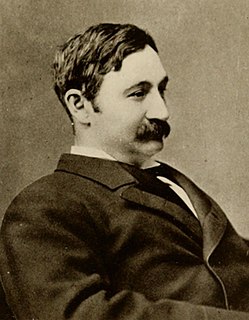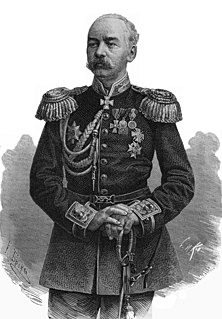 W
W"The Great Game" was a political and diplomatic confrontation that existed for most of the 19th century and beginning of the 20th century between the British Empire and the Russian Empire, over Afghanistan and neighbouring territories in Central and South Asia. It also had direct consequences in Persia and British India. Britain feared that Russia planned to invade India and that this was the goal of Russia's expansion in Central Asia, while Russia feared the expansion of British interests in Central Asia. As a result, there was a deep atmosphere of distrust and the talk of war between two of the major European empires. Britain made it a high priority to protect all the approaches to India, while Russia continued its conquest of Central Asia. Some historians of Russia have concluded that after 1801, Russia had minimal intentions or plans involving India and that it was mostly a matter of British suspicions although multiple 19th century invasion plans are attested including the Duhamel plan and Khrulev plan, among later plans that never materialized.
 W
WGeneral Sir James Abbott, was an English military officer in the Bengal Army and an administrator in British India. The city of Abbottabad, in present day Pakistan, was founded by and named after him.
 W
WThe Afghanistan–Tajikistan border is 1,357 km (843 mi) in length and runs from the tripoint with Uzbekistan in the west to the tripoint with China in the east, almost entirely along the Amu Darya, Pyanj and Pamir rivers, except for the easternmost section along the Wakhan Corridor.
 W
WThe Afghanistan–Turkmenistan border is 804 km (500 mi) in length and runs from the tripoint with Iran to the tripoint with Uzbekistan.
 W
WThe Afghanistan-Uzbekistan border is 144 km (89 mi) in length and runs from the tripoint with Turkmenistan to the tripoint with Tajikistan along the Amu Darya river. It is by far the shortest of Uzbekistan's external borders.
 W
WColonel Frederick Gustavus Burnaby was a British Army intelligence officer. Burnaby's adventurous spirit, pioneering achievements, and swashbuckling courage earned an affection in the minds of Victorian imperial idealists. As well as travelling across Europe and Central Asia, he mastered ballooning, spoke a number of foreign languages fluently, stood for parliament twice, published several books, and was admired and feted by the women of London high society. His popularity was legendary, appearing in a number of stories and tales of empire.
 W
WCaptain Sir Alexander Burnes was a Scottish explorer and diplomat associated with the Great Game. He was nicknamed Bokhara Burnes for his role in establishing contact with and exploring Bukhara, which made his name. His memoir, Travels into Bokhara, was a bestseller when it was first published in 1835.
 W
WMikhail Grigoryevich Chernyaev was a Russian major general, who, together with Konstantin Kaufman and Mikhail Skobelev, directed the Russian conquest of Central Asia during the reign of Tsar Alexander II.
 W
WThe Chitral Expedition was a military expedition in 1895 sent by the British authorities to relieve the fort at Chitral, which was under siege after a local coup following the death of the old ruler. An intervening British force of about 400 men was besieged in the fort until it was relieved by two expeditions, a small one from Gilgit and a larger one from Peshawar.
 W
WArthur Conolly was a British intelligence officer, explorer and writer. He was a captain of the 6th Bengal Light Cavalry in the service of the British East India Company. He participated in many reconnaissance missions into Central Asia and coined the term The Great Game to describe the struggle between the British Empire and the Russian Empire for domination over Central Asia.
 W
WThe Durand Line is the 2,670 km (1,660 mi) international land border between Afghanistan and Pakistan in South Asia. It was originally established in 1893 as the international border between British India and the Emirate of Afghanistan by Mortimer Durand, a British diplomat of the Indian Civil Service, and Abdur Rahman Khan, the Afghan Emir, to fix the limit of their respective spheres of influence and improve diplomatic relations and trade.
 W
WNey Elias, CIE, was an English explorer, geographer, and diplomat, most known for his extensive travels in Asia. Modern scholars speculate that he was a key intelligence agent for Britain during the Great Game. Elias travelled extensively in the Karakoram, Hindu Kush, Pamirs, and Turkestan regions of High Asia.
 W
WEuropean influence in Afghanistan has been present in the country since the Victorian era, when the competing imperial powers of Britain and Russia contested for control over Afghanistan as part of the Great Game.
 W
WThe Battle of Geok Tepe in 1881 was the main event in the 1880/81 Russian campaign to conquer the Teke Turkomans. Its effect was to give the Russian Empire control over most of what is now Turkmenistan, thereby nearly completing the Russian conquest of Central Asia.
 W
WCentral Asia has long been a geostrategic location because of its proximity to the interests of several great powers and regional powers.
 W
WBronislav Grombchevsky was an ethnic Polish officer in the Imperial Russian Army and an explorer/spy, famed for his participation in The Great Game.
 W
WThe Herat Campaign of 1862-63 was a conflict between the Emirate of Herat and the Emirate of Afghanistan, lasting from March 1862 when Sultan Jan captured Farah from the Muhammadzai Emirs and continued through the 10-month long siege of Herat until May 27, 1863 when the city fell to the Amir-i Kabir, thus completing the unification of Afghanistan.
 W
WWestern imperialism in Asia refers to the influence of Western Europe and associated states in Asian territories. It originated in the 15th-century search for trade routes to India and Southeast Asia that led directly to the Age of Discovery, and additionally the introduction of early modern warfare into what Europeans first called the East Indies and later the Far East. By the early 16th century, the Age of Sail greatly expanded Western European influence and development of the spice trade under colonialism. European-style colonial empires and imperialism operated in Asia throughout six centuries of colonialism, formally ending with the independence of the Portuguese Empire's last colony East Timor in 2002. The empires introduced Western concepts of nation and the multinational state. This article attempts to outline the consequent development of the Western concept of the nation state.
 W
WThe Anglo-Soviet invasion of Iran or Anglo-Soviet invasion of Persia was the joint invasion of the neutral Imperial State of Iran by the United Kingdom, Australia and the Soviet Union in August 1941. The invasion, codenamed Operation Countenance, was largely unopposed by the numerically and technologically outmatched Iranian forces. The multi-pronged coordinated invasion took place along Iran's borders with modern Iraq, Azerbaijan and Turkmenistan with fighting beginning on 25 August and ending on 31 August when the Iranian government formally agreed to surrender, having already agreed to a ceasefire on 30 August.
 W
WKonstantin Petrovich Kaufman, better known as Konstantin Petrovich von Kaufmann, was the first Governor-General of Russian Turkestan.
 W
WKim is an adventure role-playing video game developed by British independent developer The Secret Games Company, based on the novel of the same name by Rudyard Kipling. The game allows the player to take control of the novel's young hero, the teenage beggar Kim, as he begins his practical training as a field agent working for British intelligence in "The Great Game". Along the way, Kim meets an aged Tibetan lama and adopts him as his traveling companion, joining his search for a spiritual river of healing. Carry secret messages for Mahbub Ali the charismatic horse trader and undercover British agent, dicker for food with street vendors, collect maps to speed your travel, and experience the wonder of the "te-rain" that connects British India from Lahore to Benares.
 W
WMajor General Sir Charles Metcalfe MacGregor KCB CSI CIE was a British explorer, geographer and officer of the British Indian Army. He was the Quartermaster General for the British Army in India, the head of the Intelligence Department for the British Indian Army and served under Frederick Roberts in the Second Anglo-Afghan War. The MacGregor Medal is awarded in his honour.
 W
WSir William Hay Macnaghten, 1st Baronet, was a British civil servant in India, who played a major part in the First Anglo-Afghan War.
 W
WSir John McNeill was a Scottish surgeon and diplomat.
 W
WThe Panjdeh incident was an armed engagement between the Emirate of Afghanistan and the Russian Empire in 1885 that led to a diplomatic crisis between the British Empire and the Russian Empire caused by the Russian expansion south-eastwards towards the Emirate of Afghanistan and the British Raj (India). After nearly completing the Russian conquest of Central Asia the Russians captured an Afghan border fort, threatening British interests in the area. Seeing a threat to India, Britain prepared for war but both sides backed down and the matter was settled by diplomacy. The effect of this incident was to stop further Russian expansion in Asia, except for the Pamir Mountains and to define the north-western border of Afghanistan.
 W
WCount Vasily Alekseevich Perovsky (1794–1857) was an Imperial Russian general and statesman.
 W
WLieutenant-General Sir Henry Pottinger, 1st Baronet was an Anglo-Irish soldier and colonial administrator who became the first Governor of Hong Kong.
 W
WThe term pundit was used in the second half of the 19th century to denote native Indian surveyors used by the British to secretly explore regions north of British India. The Pundit was the code-name for one of the first native explorers Nain Singh who was originally a schoolteacher. His accomplishments were so remarkable that the whole group of around twenty native explorers became known as the Pundits.
 W
WThe Second Anglo-Afghan War was a military conflict fought between the British Raj and the Emirate of Afghanistan from 1878 to 1880, when the latter was ruled by Sher Ali Khan of the Barakzai dynasty, the son of former Emir Dost Mohammad Khan. The war was part of the Great Game between the British and Russian empires.
 W
WSir Richmond Campbell Shakespear was an Indian-born British Indian Army officer. He helped to influence the Khan of Khiva to abolish the capture and selling of Russian slaves in Khiva. This likely forestalled the Russian conquest of the Khiva, although it ultimately did not prevent it.
 W
WMikhail Dmitriyevich Skobelev was a Russian general famous for his conquest of Central Asia and heroism during the Russo-Turkish War of 1877–1878. Dressed in white uniform and mounted on a white horse, and always in the thickest of the fray, he was known and adored by his soldiers as the "White General". During a campaign in Khiva, his Turkmen opponents called him goz ganly or "Bloody Eyes". British Field Marshal Bernard Montgomery wrote that Skobelev was the world's "ablest single commander" between 1870 and 1914 and called him a "skilful and inspiring" leader.
 W
WColonel Charles Stoddart was a British officer and diplomat. He was a famous British agent in Central Asia during the period of the Great Game.
 W
WÁrmin Vámbéry, also known as Arminius Vámbéry, was a Hungarian Turkologist and traveller.